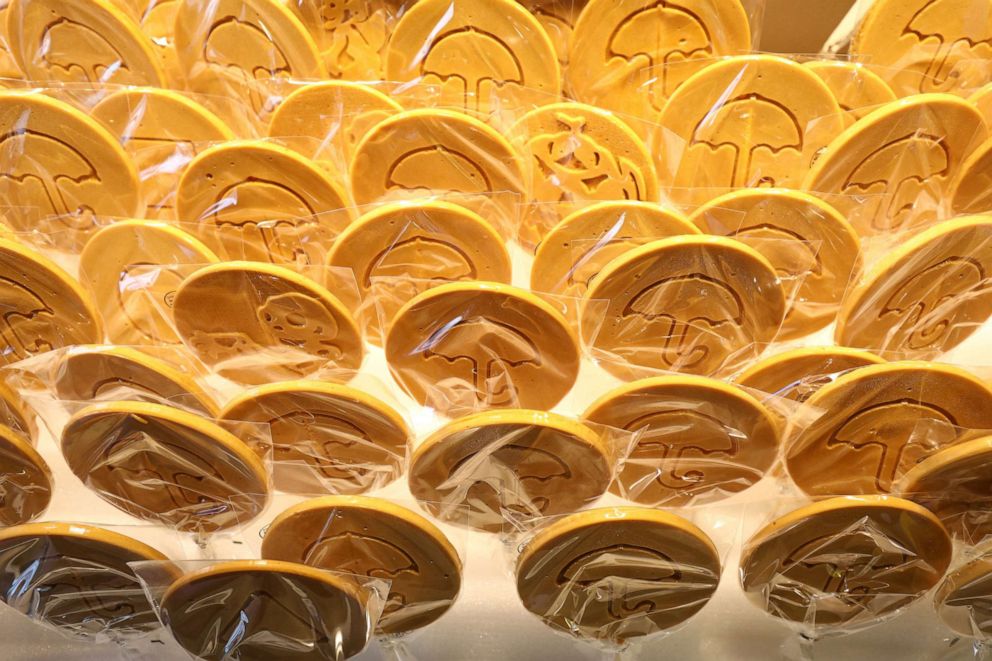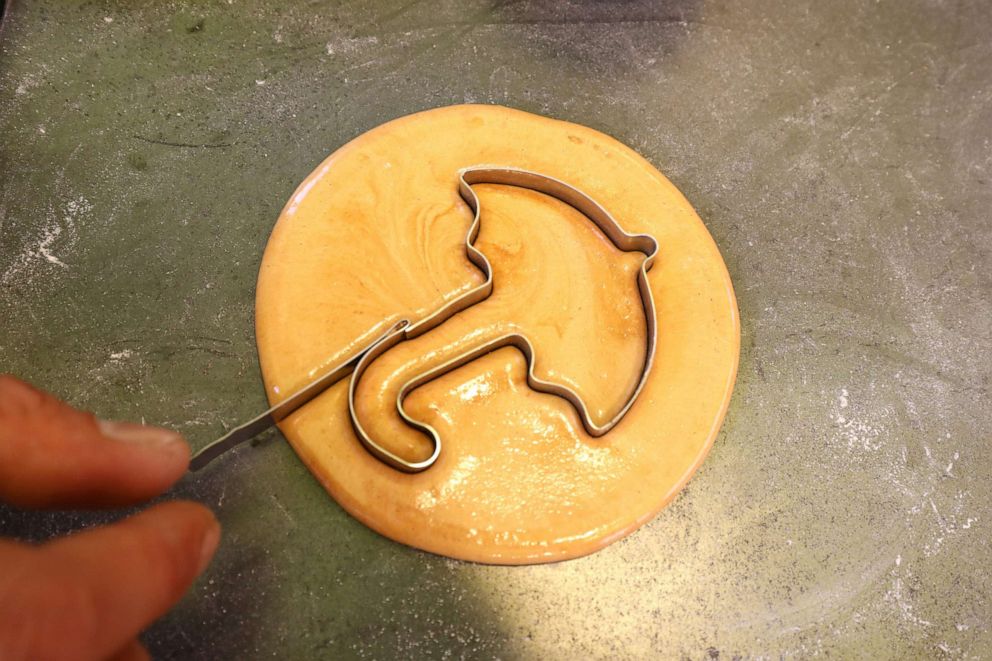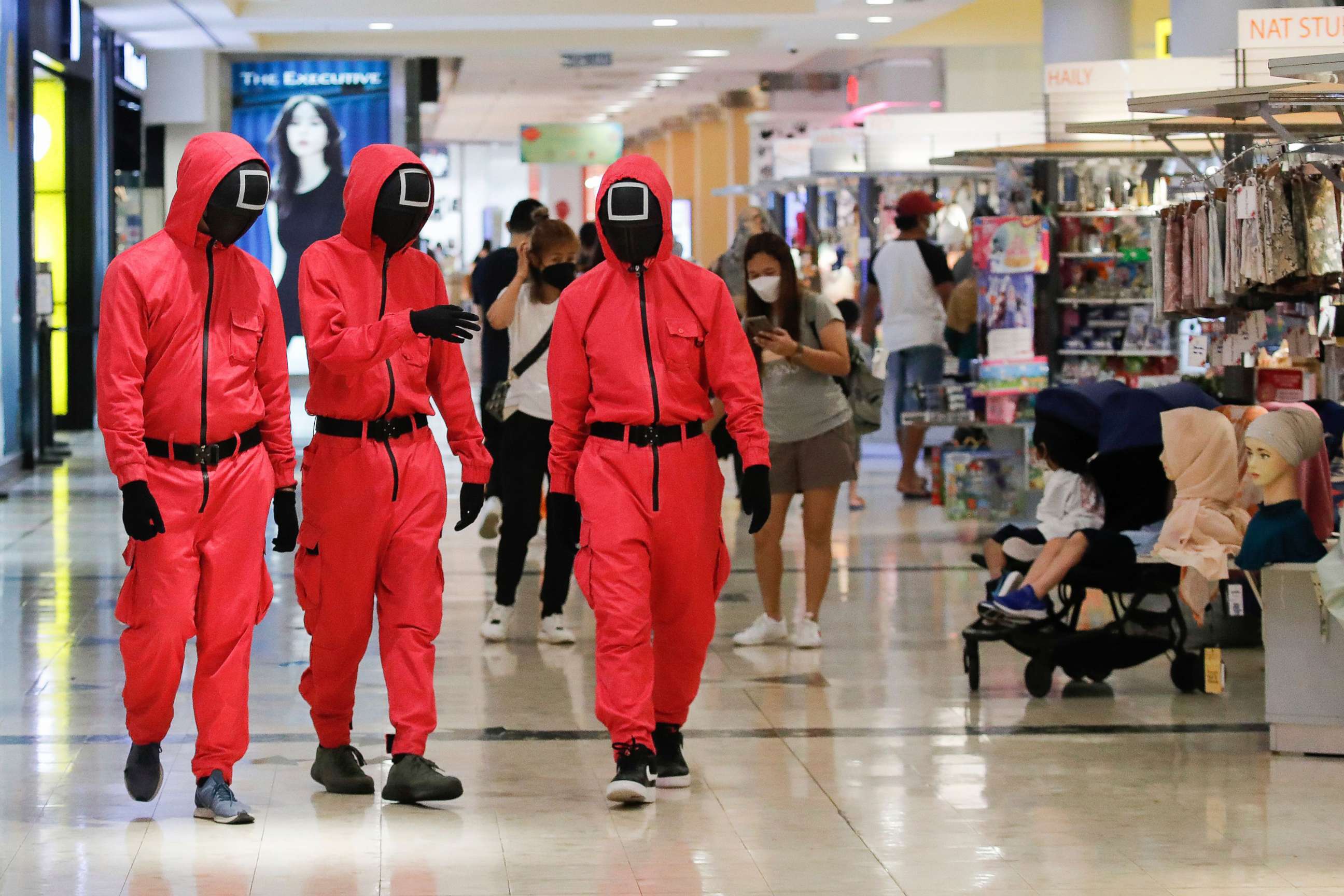'Squid Game' propels dalgona candy to fame, stirring delight, competition and nostalgia
A dalgona stall in Seoul says sales boosted up to eight times.
SEOUL, South Korea -- The traditional South Korean treat dalgona honeycomb candy, also known as ppopki in Korean, has taken the world by storm thanks to the hit Netflix drama “Squid Game.” The new death survival game series was watched by 142 million users in its first four weeks, surpassing the previous record of another hit show, "Bridgerton," according to Netflix.
A significant number of "Squid Game" viewers and influencers have been posting content of their attempts at the dalgona challenge and other related memes and games onto social media channels, propelling the candy into a worldwide trend. The goal of the dalgona challenge is to cut out the carved symbols on the candy in various shapes- circle, triangle, star or maybe an umbrella- without breaking the delicate dessert as they did in the "Squid Game."
Dalgona candy tastes like honeycomb—bitter, nutty and sweet. It's chewy when melted and easy to break when hardened.
The dalgona candy, featured in episode three of the show, was handmade by a group of candymakers in Seoul, which goes by the name of Segyero Dalgona. The street vendor has been making dalgona candies for eight years near the Hyehwa subway station, and provided 700 dalgonas to "Squid Game."

Before the pandemic, the business was difficult, according to the Segyero Dalgona stand owner Ahn Yong-hui, but thanks to "Squid Game," it is now selling more than 400 to 500 candies a day.
"Before the Squid Game, there weren't many customers on the street because of the pandemic, so sales dropped significantly," Ahn told ABC News. "Compared to then, sales increased by five times, and maybe up to seven or eight times."
Ahn told ABC News that on weekends, people lined up even before they finished setting up for sale. Some waited in hour-long lines for the candy, while some others traveled from a different city.
"Because my son wanted to experience the dalgona candy, we waited for two hours. I'm very happy that we had a great experience together," businessman Choi Ik-Ho, who was second in line to play the dalgona game, told ABC News.
Customers in their 40s and 50s say the thick sugary scent of dalgona often brings back old memories of their childhood.

"Dalgona takes me back to my childhood in the 1970s when I had the candy every day. My favorite shape back then was a star and children weren't allowed to use needles to carve out the shape. That was considered cheating," 54-year-old writer Jung Young-Ran told ABC News.
The recipe is simple. Melt and stir a tablespoon of sugar until it's brown. Then, add a pinch of baking soda and stir hard until it gets golden and puffs up. Flatten the molten sugar on a flat surface and before the sugar hardens, stamp with a shape of choice. The key to making a good, shiny dalgona, according to the candy makers, is to stir fast and hard as to keep the temperature of the sugar low when adding the baking soda.
The most popular shape among customers is the umbrella, which is what the main character picked on the show. There are many other shapes one can pick out on-site, but the shape is what determines the level of difficulty of the game, so customers must carefully consider their decisions before choosing.
The time limit to carving out the shape without breaking the candy is five minutes. When the clock starts to tick, people cheer each other on. When one does succeed in the challenge, the candy makers of Segyero Dalgona grant an additional dalgona candy bar as a prize.

Dalgona first emerged in the 1950s during the post-Korean War era and has been a beloved Korean street food staple for decades. This is, however, the first time that the candy - not to be confused with the dalgona coffee that went viral in 2020 - has received such global attention.
ABC News' Hakyung Kate Lee contributed to this report.




